Abstract
The present study attempted to assess one condition of language exposure that might be operative in a normal environment, and experimentally determine its relevance to the acquisition of productive speech. The results demonstrated that the development of receptive language skills can be functionally related to productive speech. Specifically, the data indicated that exposure to words that have stimulus control over a subject's nonverbal pointing behavior can facilitate later articulation of those same words. Thus, this study draws attention to the fact that at least some classes of operants, in this case verbal, can be affected not only by their consequences, but by not obviously related antecedent events as well.
Full text
PDF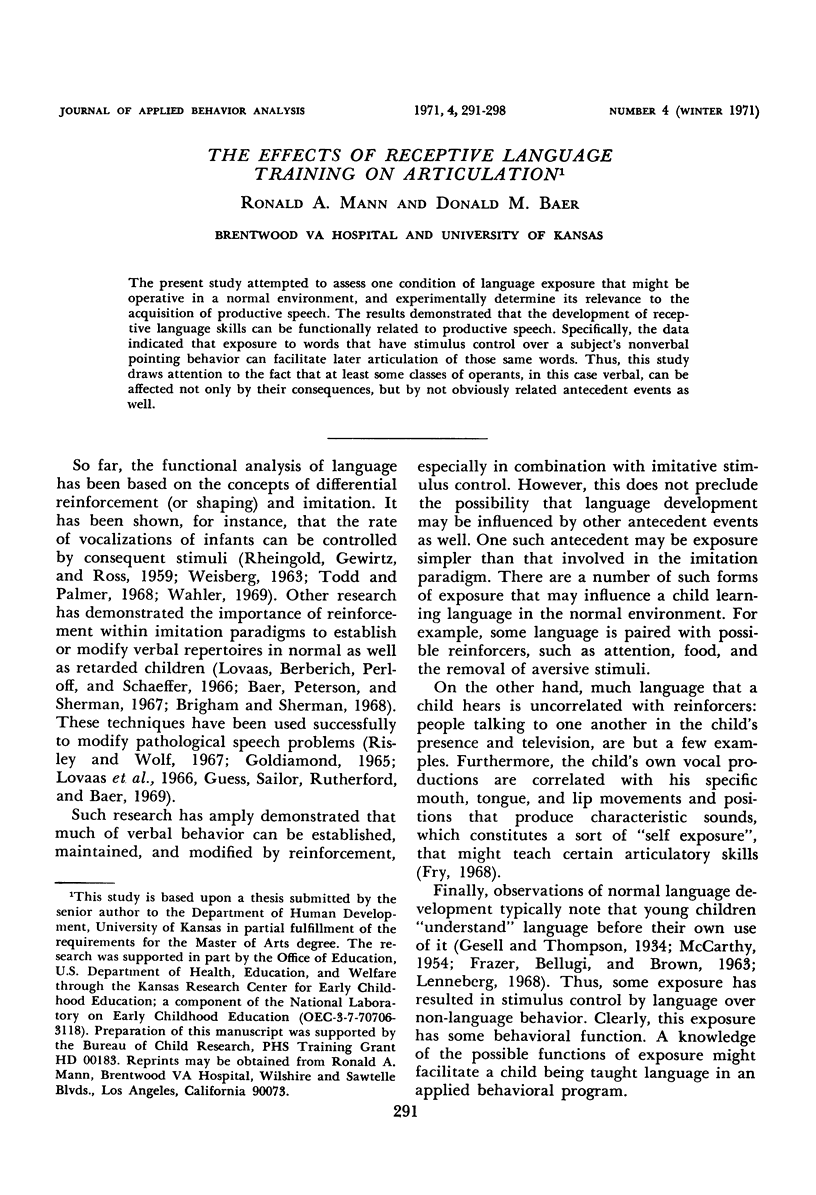
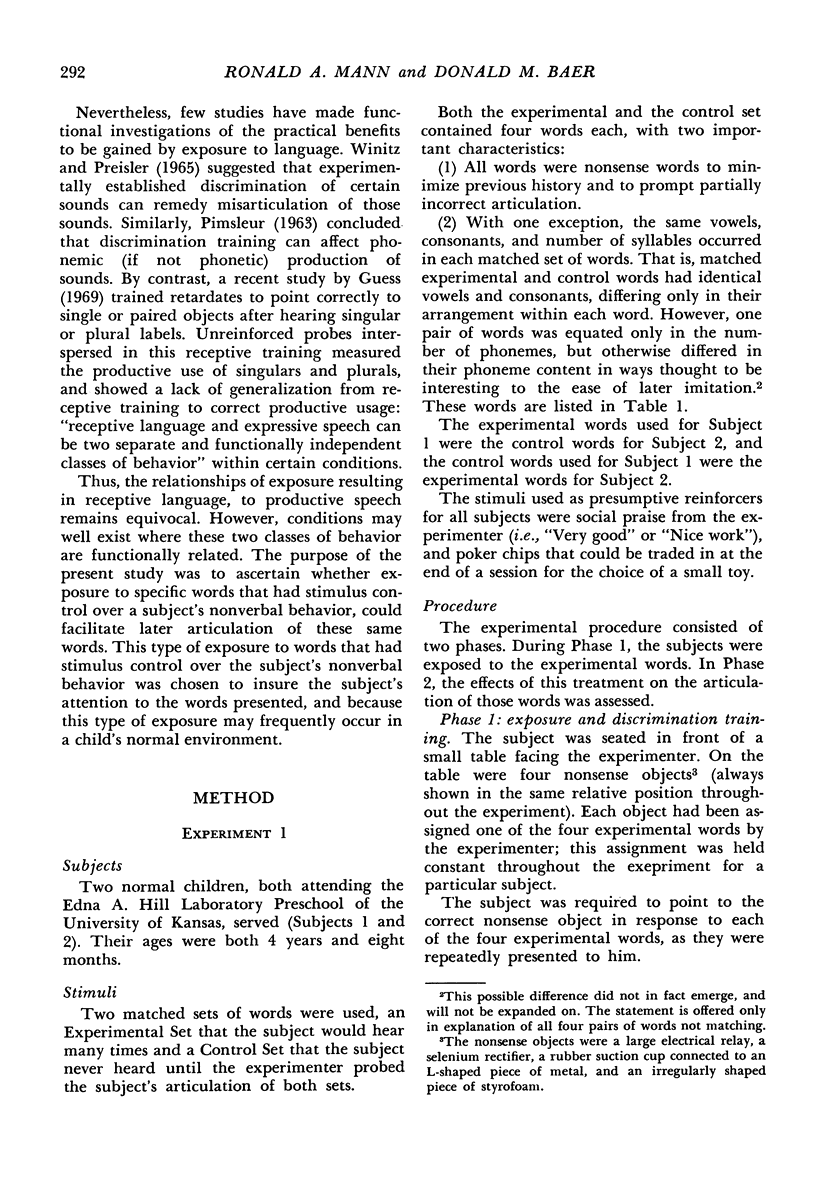
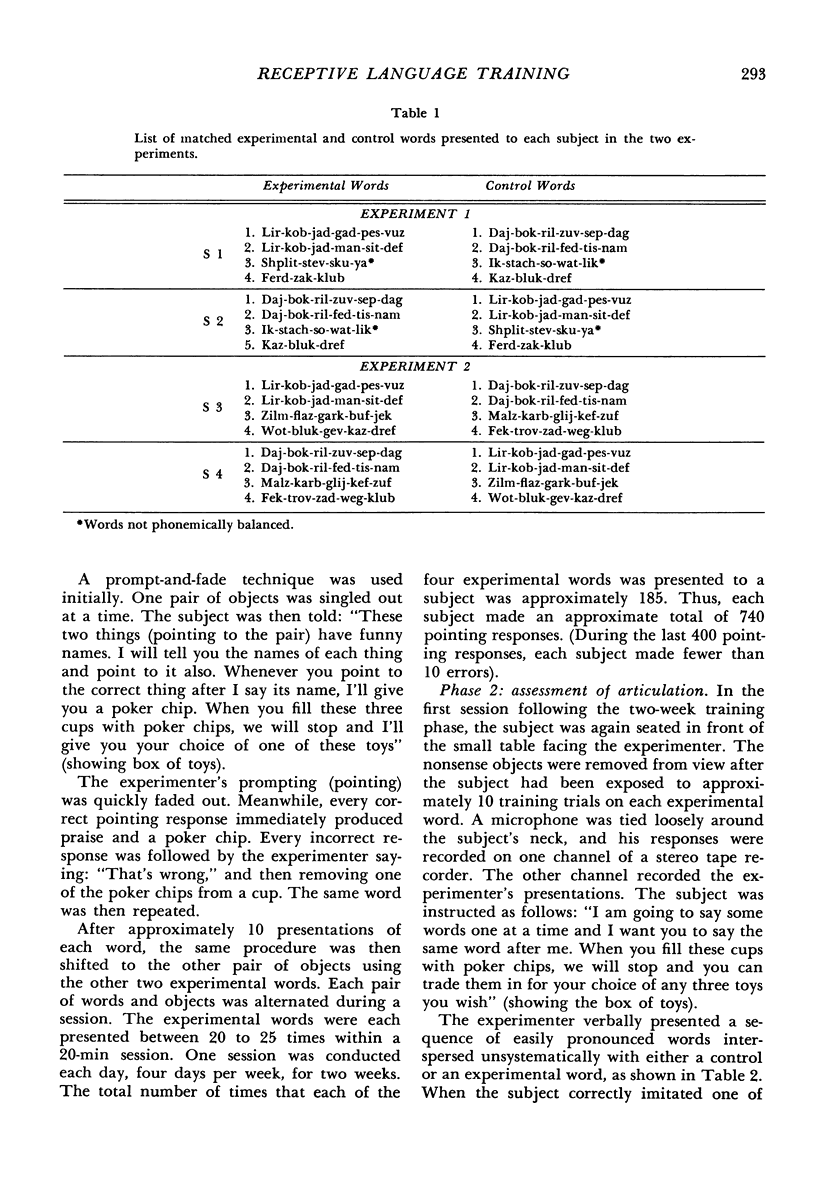
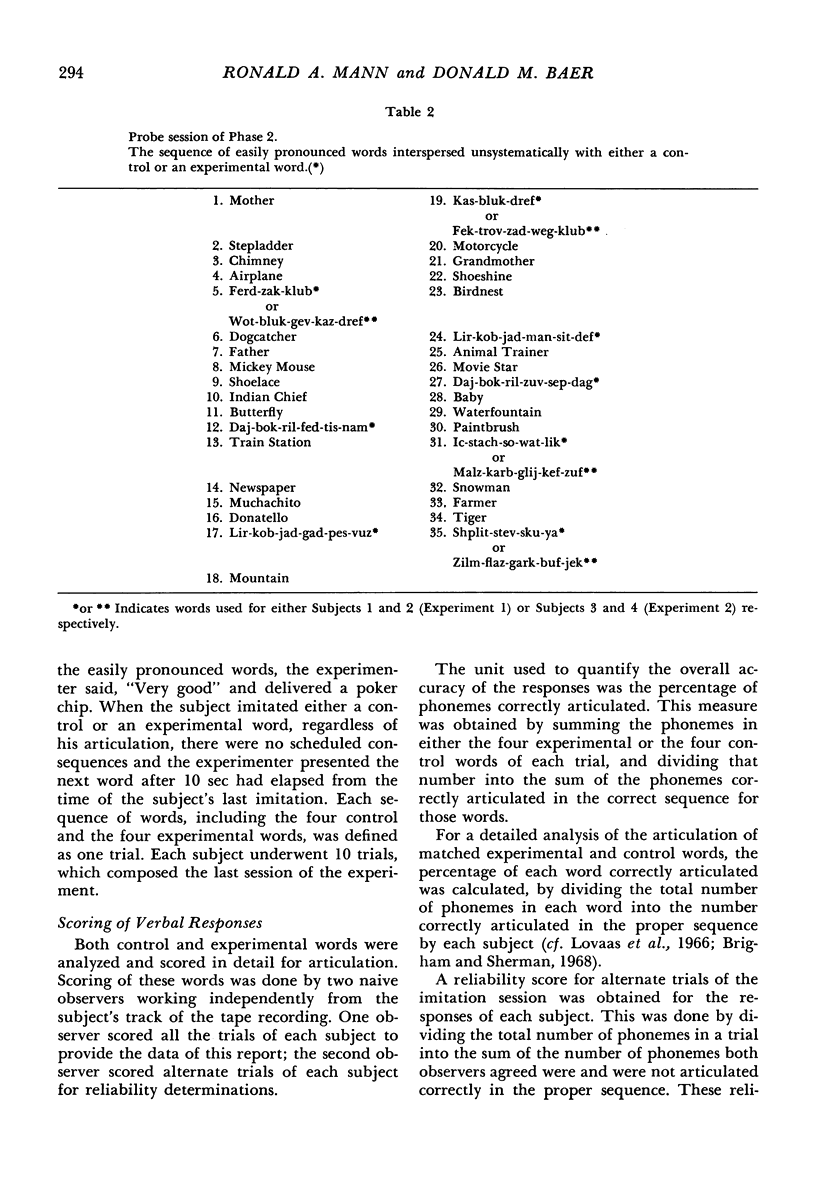
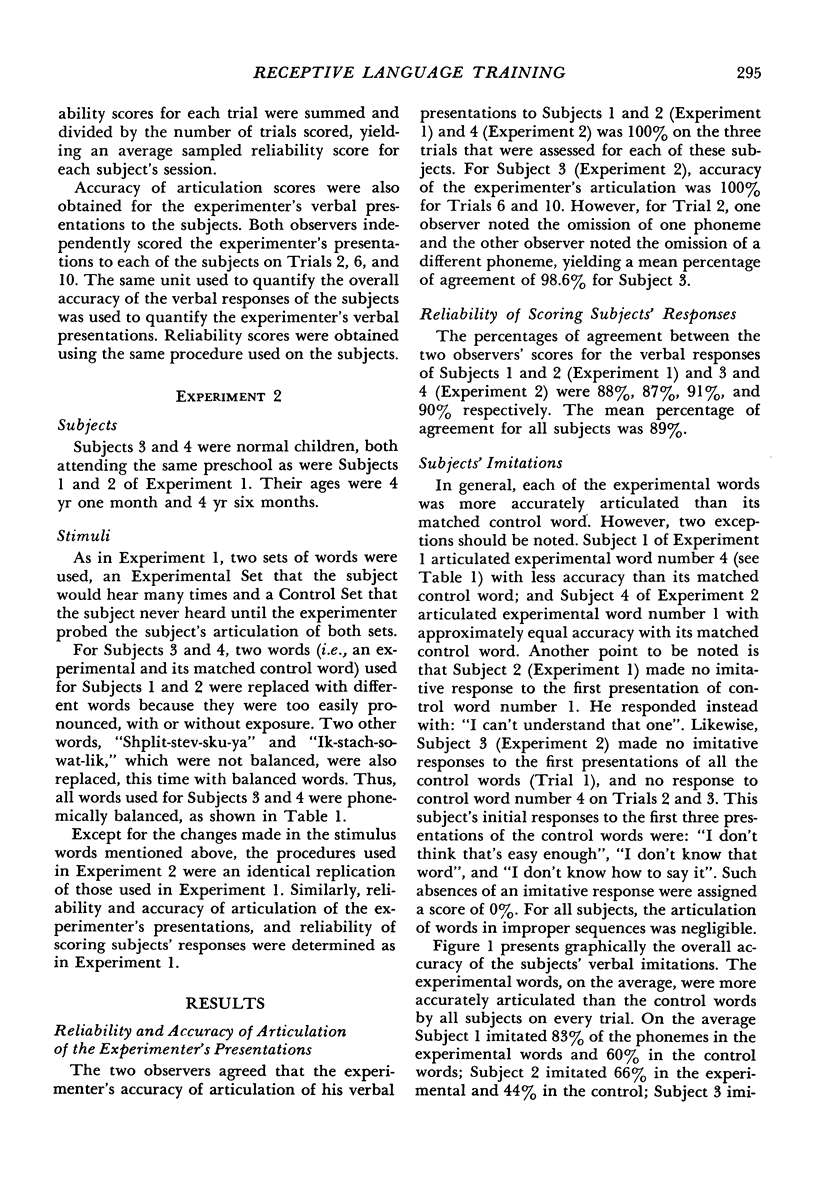
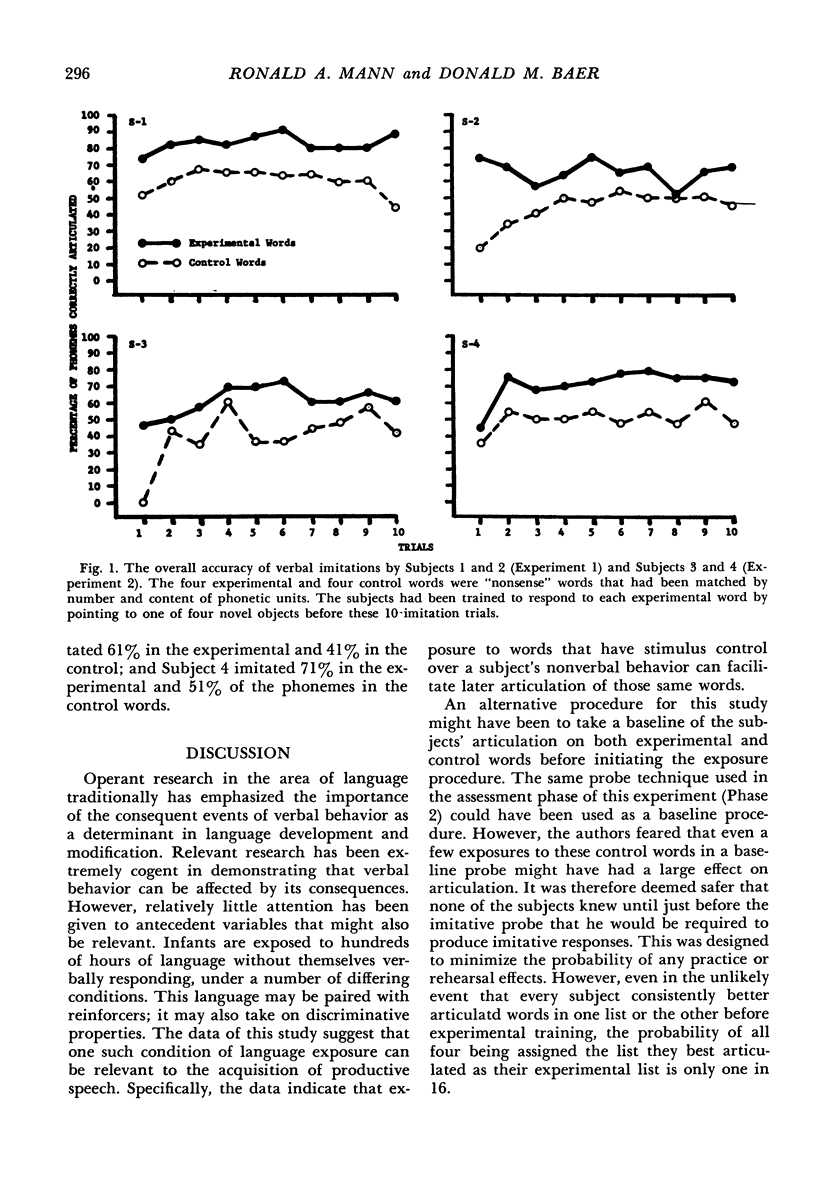
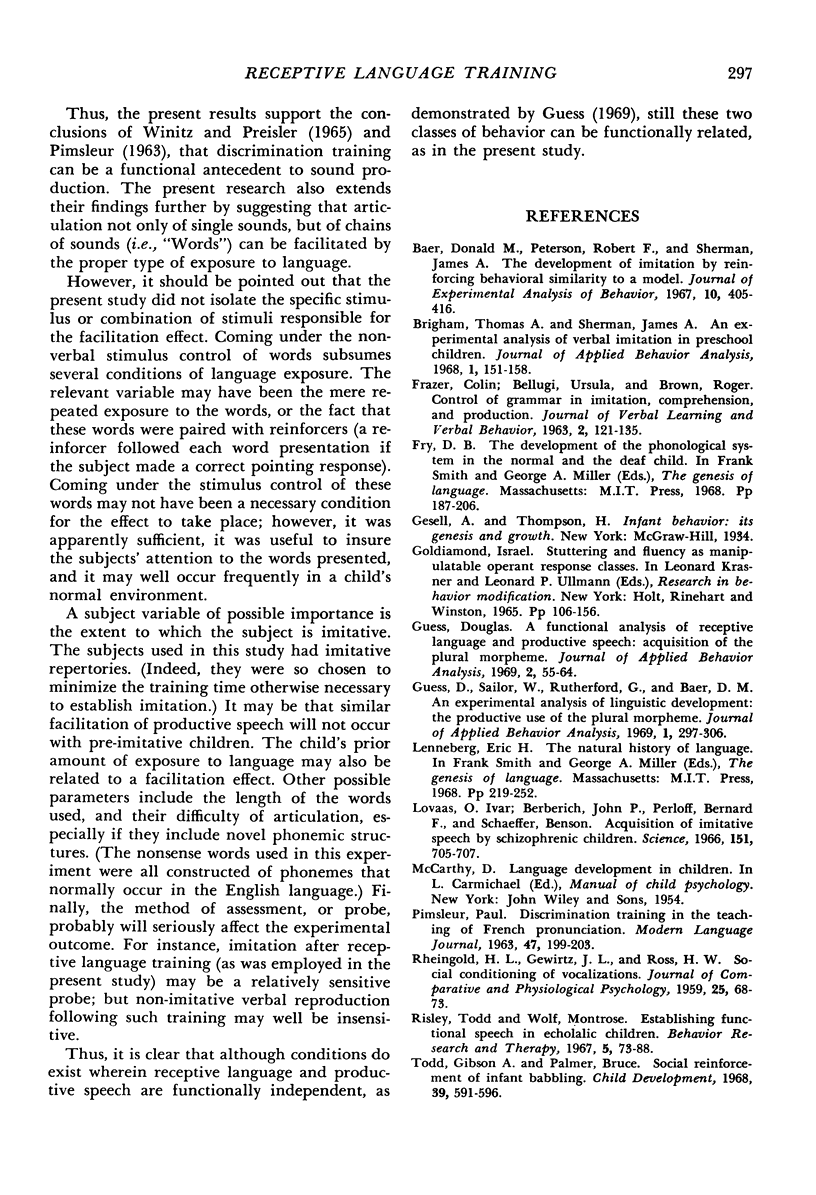
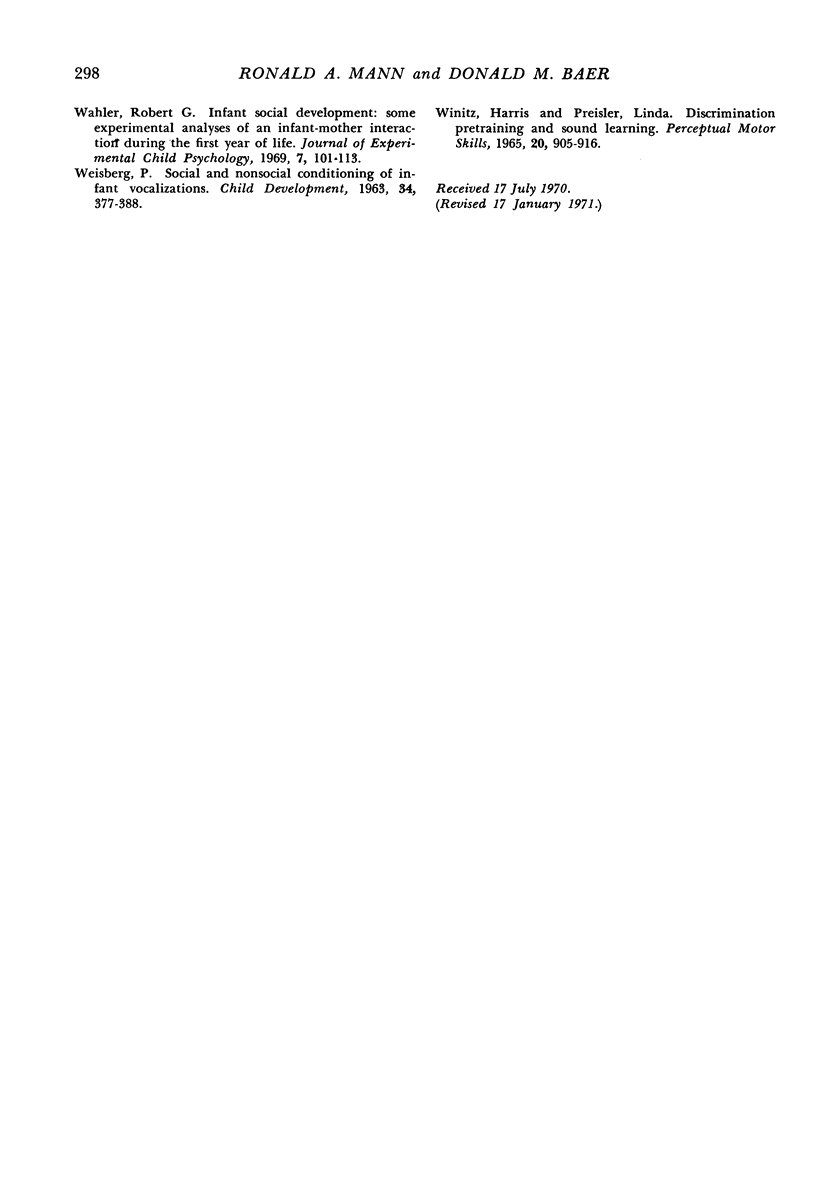
Selected References
These references are in PubMed. This may not be the complete list of references from this article.
- Baer D. M., Peterson R. F., Sherman J. A. The development of imitation by reinforcing behavioral similarity to a model. J Exp Anal Behav. 1967 Sep;10(5):405–416. doi: 10.1901/jeab.1967.10-405. [DOI] [PMC free article] [PubMed] [Google Scholar]
- Brigham T. A., Sherman J. A. An experimental analysis of verbal imitation in preschool children. J Appl Behav Anal. 1968 Summer;1(2):151–158. doi: 10.1901/jaba.1968.1-151. [DOI] [PMC free article] [PubMed] [Google Scholar]
- Guess D. A functional analysis of receptive language and productive speech: acquisition of the plural morpheme. J Appl Behav Anal. 1969 Spring;2(1):55–64. doi: 10.1901/jaba.1969.2-55. [DOI] [PMC free article] [PubMed] [Google Scholar]
- Guess D., Sailor W., Rutherford G., Baer D. M. An experimental analysis of linguistic development: the productive use of the plural morpheme. J Appl Behav Anal. 1968 Winter;1(4):297–306. doi: 10.1901/jaba.1968.1-297. [DOI] [PMC free article] [PubMed] [Google Scholar]
- Lovaas O. I., Berberich J. P., Perloff B. F., Schaeffer B. Acquisition of imitative speech by schizophrenic children. Science. 1966 Feb 11;151(3711):705–707. doi: 10.1126/science.151.3711.705. [DOI] [PubMed] [Google Scholar]
- RHEINGOLD H. L., GEWIRTZ J. L., ROSS H. W. Social conditioning of vocalizations in the infant. J Comp Physiol Psychol. 1959 Feb;52(1):68–73. doi: 10.1037/h0040067. [DOI] [PubMed] [Google Scholar]
- Risley T., Wolf M. Establishing functional speech in echolalic children. Behav Res Ther. 1967 May;5(2):73–88. doi: 10.1016/0005-7967(67)90001-0. [DOI] [PubMed] [Google Scholar]
- Todd G. A., Palmer B. Social reinforcement of infant babbling. Child Dev. 1968 Jun;39(2):591–596. [PubMed] [Google Scholar]
- WEISBERG P. Social and nonsocial conditioning of infant vocalizations. Child Dev. 1963 Jun;34:377–388. doi: 10.1111/j.1467-8624.1963.tb05145.x. [DOI] [PubMed] [Google Scholar]
- WINITZ H., PREISLER L. DISCRIMINATION PRETRAINING AND SOUND LEARNING. Percept Mot Skills. 1965 Jun;20:905–916. doi: 10.2466/pms.1965.20.3.905. [DOI] [PubMed] [Google Scholar]
- Wahler R. G. Infant social development: some experimental analyses of an infant-mother interaction during the first year of life. J Exp Child Psychol. 1969 Feb;7(1):101–113. doi: 10.1016/0022-0965(69)90089-7. [DOI] [PubMed] [Google Scholar]


